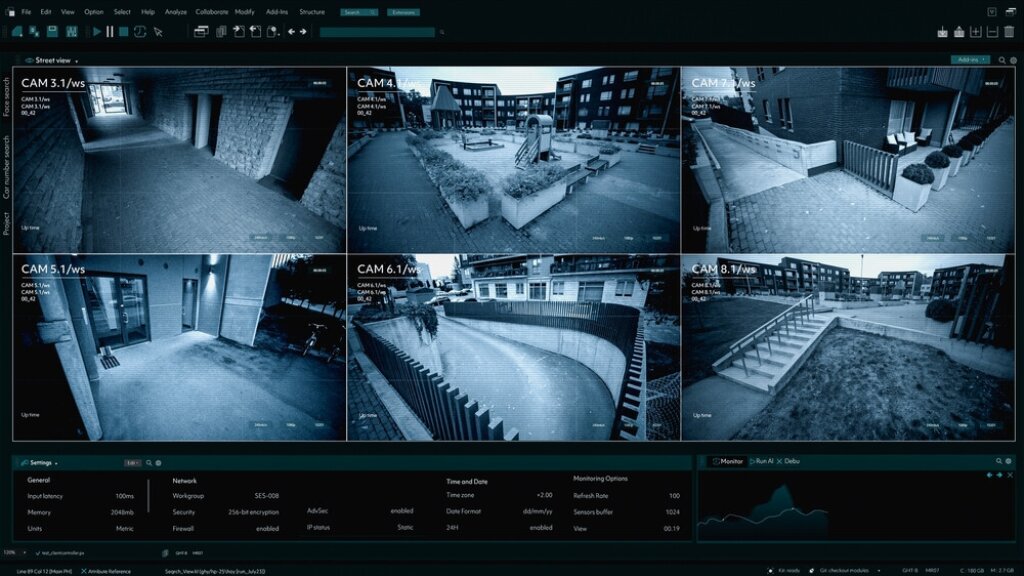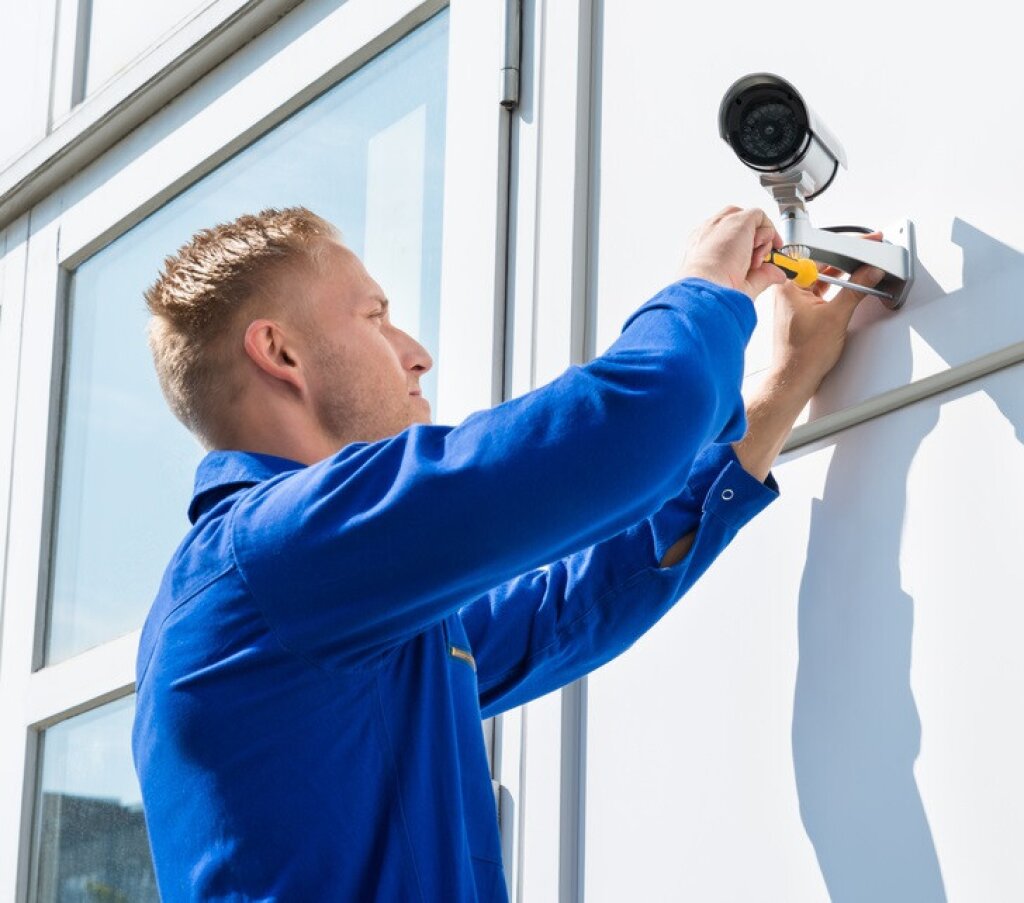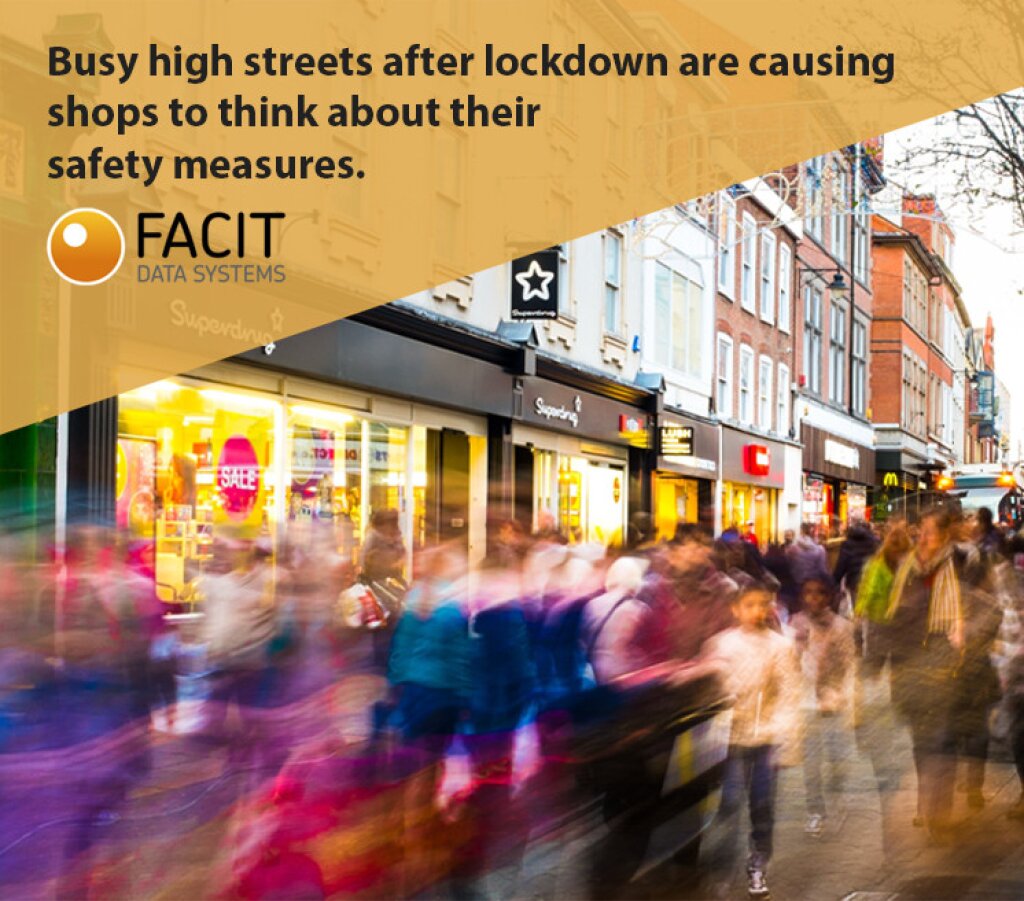AI-Powered Monitoring for Housing Associations: A Game-Changer for Modern Housing Management
Housing associations are increasingly turning to innovative technologies to improve the management and safety of their properties. One of the most transformative tools is artificial intelligence (AI), which is now driving significant advancements in monitoring, maintenance and operational efficiency.
AI-powered monitoring solutions not only help housing associations to streamline their processes, but also foster a safer, more efficient environment for tenants.
This article explores how AI is reshaping housing associations in key areas such as public space security, compliance, maintenance, tenant safety and operational efficiency.

1. Improving Public Space Security with Body-Worn Cameras
One of the primary concerns for housing associations is ensuring the safety and security of communal areas. To address safety matters, body-worn cameras integrated with AI are becoming an essential tool for security personnel.
AI-powered body cameras can detect suspicious behaviour, analyse footage in real-time and alert authorities or housing management when necessary.
AI algorithms can also process vast amounts of data from body-worn cameras, flagging potential risks such as unauthorised gatherings, property damage or incidents of violence.
Adopting a proactive approach minimises response time, enhances security and provides concrete evidence in disputes or criminal investigations. Moreover, AI enables automated video analysis, which significantly reduces the workload for staff while ensuring continuous surveillance.
2. Integrating AI Solutions for Compliance and Efficiency
Compliance with government regulations is another critical area where AI is making a notable impact.
Housing associations are required to adhere to numerous legal standards, including fire safety regulations, environmental guideline and tenant rights.
By integrating AI-driven compliance tools, housing associations can automatically monitor and record necessary activities to ensure regulatory standards are met.
AI systems can track and log activities like fire alarm testing, safety inspections and energy consumption in real-time. This automated process reduces the risk of human error and ensures that housing associations are consistently meeting legal requirements.
AI can also analyse historical data and identify patterns to recommend improvements or flag potential areas of non-compliance.
3. Proactive Maintenance with Predictive Analytics
AI-powered predictive analytics has revolutionised the way housing associations approach maintenance. Rather than waiting for a breakdown or tenant complaint, predictive maintenance uses AI to analyse building systems, such as plumbing, HVAC and electrical grids, and thereby predict when repairs are needed.
By monitoring the condition of equipment and infrastructure continuously, AI can identify early warning signs of potential failures to enable housing associations to address issues before they become costly or disruptive.
Adopting a proactive approach not only extends the lifespan of assets but also improves tenant satisfaction by reducing the likelihood of inconvenient outages or repairs.
Moreover, predictive maintenance powered by AI helps optimise resource allocation. Maintenance teams can focus on high-priority tasks, which reduces unnecessary maintenance costs while keeping facilities in top condition.
4. Enhancing Tenant Safety and Privacy with AI Tools
Tenant safety is paramount for housing associations, and AI offers several tools to enhance this aspect of housing management.
For instance, AI-powered sensors and smart home systems can monitor indoor environments for hazards like gas leaks, smoke or carbon monoxide, and automatically alert both tenants and management. These systems help prevent accidents and provide an additional layer of security within residential units.
At the same time, privacy concerns are paramount when using technology in residential settings. Housing associations can leverage AI systems that operate within the boundaries of privacy regulations, ensuring that surveillance and monitoring activities do not infringe upon tenant rights.
Modern AI solutions can anonymise data to protect personal information while still delivering insights needed to maintain safety and efficiency.
For example, technology in common areas can be used to detect unauthorised individuals while avoiding any violation of tenants' privacy by anonymising data.
By balancing safety with privacy, housing associations can foster a more secure and comfortable living environment.
5. Streamlining Operations and Cost with AI Automation
Housing associations face the constant challenge of managing large volumes of tasks, from rent collection to maintenance requests. AI-driven automation is helping to streamline these operations to improve both efficiency and cost-effectiveness.
With AI tools, housing associations can automate repetitive tasks such as processing tenant applications, managing leases and sending payment reminders.
Automation enables staff to focus on higher-value tasks that require human expertise, such as addressing tenant concerns or planning long-term property improvements.
Another key benefit of AI automation is improved communication with tenants. Chatbots and AI-powered communication tools enable housing associations to offer 24/7 support, to answer tenant queries and address minor issues in real-time. This not only enhances tenant satisfaction but also reduces the workload on property management teams.
AI-Powered Video Monitoring with Built-In Privacy Features
AI-powered video monitoring systems use advanced AI algorithms to monitor common areas, identify potential risks such as unauthorised access or vandalism, and provide real-time alerts.
However, privacy concerns remain paramount when implementing such technologies.
To address privacy concerns, AI-powered video monitoring solutions can incorporate privacy-first features. For example, anonymisation techniques can blur faces or selectively obscure personal identifiers, ensuring that footage can be analysed without compromising tenant privacy.
These monitoring systems also provide for granular control over who has access to the footage, ensuring that only authorised personnel can view sensitive data.
Additionally, AI can be programmed to focus only on specific events or behaviours, such as detecting loitering or recognising emergency situations, which reduces unnecessary surveillance of tenants.
By combining enhanced security with built-in privacy protections, housing associations can strike a balance between safeguarding their properties and respecting the rights of their residents.
AI-driven monitoring systems help housing associations create a secure, respectful living environment, which provides peace of mind to both management and tenants without overstepping privacy boundaries.
Conclusion: AI-powered Monitoring and Analytics
AI-powered monitoring and automation are transforming the housing association sector and delivering significant improvements in security, efficiency and tenant satisfaction. From body-worn cameras enhancing public space security to predictive maintenance reducing costs and disruptions, AI tools are providing housing associations with the means to manage their properties more effectively and safely.
As AI technology continues to evolve, housing associations have the opportunity to integrate more advanced solutions into their operations, creating smarter, safer and more efficient living environments for tenants.
With AI at the forefront, the future of housing management is set to become more proactive, responsive, and cost-effective.
Facit Privacy Solutions
Facit’s AI-Powered monitoring solutions have built-in privacy measures to assure compliance with data protection standards and strict regulations such as GDPR.
Facit’s privacy solution, Identity Cloak, enables housing associations to extract maximum value from video data analytics while they are able to ensure the privacy of tenants, staff and visitors to housing estates.
Related article
Complete Guide to Video Analytics
Anonymising Data Techniques Best Practices
If you have questions about optimising housing association management using AI-Powered monitoring, please get in touch.



